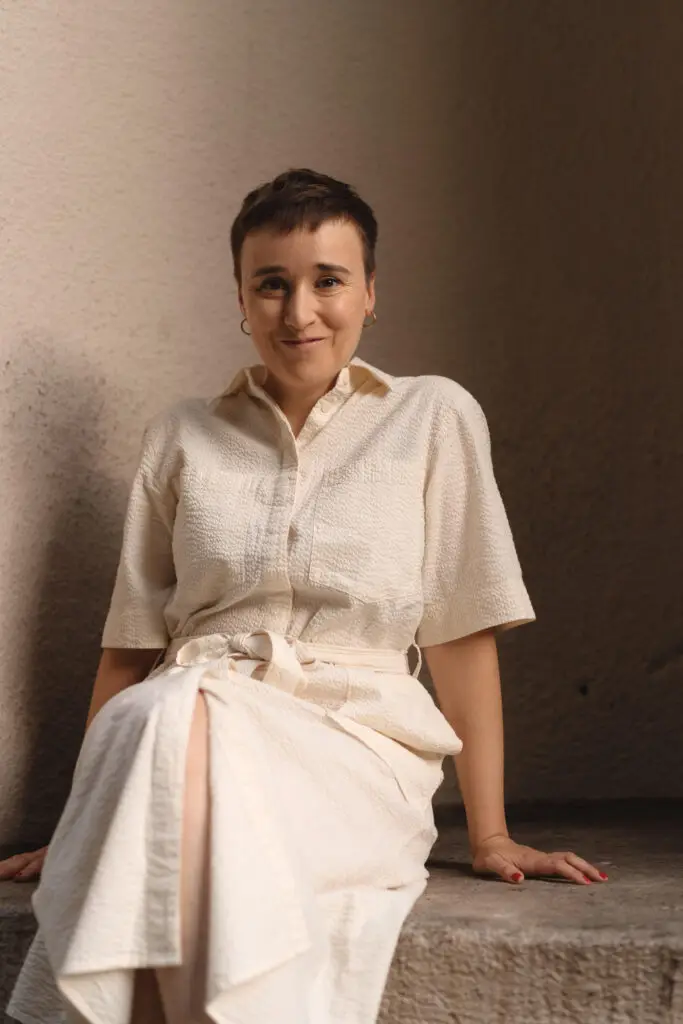Maja Sojref | Neukölln
“It is disappointing that many are unwilling to engage with the complexities of this conflict, to bear ambivalence, and to show empathy for the suffering of civilians on both sides.” (October 2024)
Maja Sojref, born and raised in the East Berlin borough of Lichtenberg, is a prominent voice navigating the intricate dynamics between Israel, Middle East politics, and Germany. As managing director of the New Israel Fund (NIF) Germany since early 2023, she has led efforts to bolster a shared society in Israel and enhance civil society’s resilience amidst ongoing conflicts. NIF Germany’s branch in Berlin allows the organization to leverage Germany’s historical and political context to advocate for democratic values, human rights, and social justice in Israel for all of its residents. It also aims to promote a better understanding of the work of Israel‘s civil society in Germany. At the New Israel Fund, Maja Sojref works to reshape the discourse on solidarity with Israel and to support progressive voices that advocate for coexistence, human rights, and democracy. She focuses on mobilizing the Jewish diaspora and engaging European partners to support Israeli civil society groups that promote these values, even when their efforts are met with resistance. Despite challenges, particularly with regard to humanitarian aid in Gaza, Maja remains committed to fostering a society in which diverse perspectives can thrive, and encouraging a more inclusive understanding of solidarity that transcends polarized narratives.
Sojref’s activism extends beyond her role as a director; she is also a prolific writer who contributes to publications such as Blätter für deutsche und internationale Politik. In her writings, she emphasizes solidarity with Israel’s civil society and the need for new perspectives to grasp the complex realities of the region.
Reflecting on the anniversary of the events of October 7, 2023, Sojref shared personal experiences in various media of the unwavering support for the different communities attacked on October 7 and the fate of the hostages. She described the struggle to find space for mourning in the aftermath, as grief was quickly overshadowed by political debate and polarization. Advocating for empathy-driven actions, she underscores the importance of Jewish-Arab partnerships and grassroots initiatives such as Standing Together, Sikuy-Aufoq and others. She calls on German interlocutors to give more space to voices from the region – Israeli and Palestinian – rather than focusing all their attention on internal German discourses.

